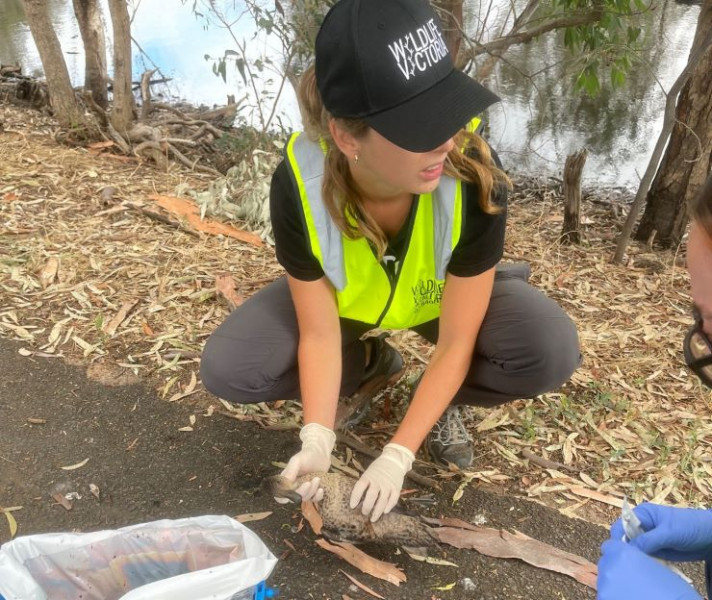The mass bird casualty situation at the Bells Swamp Conservation Reserve near Maldon continues to worsen with 640 dead birds pulled from the wetlands as of Friday afternoon.
A Parks Victoria spokesperson told the Express they were still awaiting test results at the time of going to press. However, it is strongly suspected the birds died as a result of avian botulism.
Parks Victoria has appointed an incident controller to manage response to the incident, with 25 personnel on site Tuesday including staff, vets and volunteers from Parks Victoria, Wildlife Victoria, the Department of Energy, Environment and Climate Action and other groups.
Parks Victoria district manager Suzanne Hughes said they appreciated the support and concern of community members, but no further volunteers were required and people were asked to stay away from the reserve until further notice.
“It is important that disturbance to the birds is limited, and all activities are managed to ensure animal welfare and responder safety. Do not enter the water, do not handle sick or dead birds without authorisation, and take care that pets are kept away from the area,” she said.
The toll continued to mount late last week as Parks Victoria team members visited the wetlands daily to collect sick and injured birds.
Wildlife Victoria has raised concerns over the ongoing wildlife deaths at the site.
Over the past week Wildlife Victoria has provided veterinary, management and volunteer support services at Bells Swamp.
While testing is ongoing, Wildlife Victoria understands that avian botulism is the most likely cause.
The group says avian botulism presents as paralysis with infected birds showing lethargy, an inability to walk or fly, or to hold their head up. Impacted birds often drown when they can no longer hold their heads above water.
As flying species, ducks and waterbirds have the potential to spread the toxin to other waterways and regions. Wildlife Victoria is aware of two other reports of waterbirds displaying similar symptoms outside of Bells Swamp suggesting this may become a wider issue.
Wildlife Victoria said the incident at Bells Swamp highlighted the ongoing pressures on waterbirds ahead of an upcoming announcement from the government about the future of Victoria’s increasingly unpopular duck hunting season.
The wildlife agency maintains that ducking hunting is an unnecessary and unsustainable practice that causes significant distress, fear, pain and suffering to innocent wildlife.
As additional environmental impacts such as fires, flood and disease continue to place undue stress on native wildlife populations, Wildlife Victoria renews calls on the government to make decisions that protect already at-risk species.








